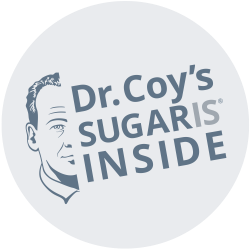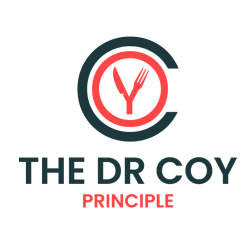Fuelling the brain safely for better memory and concentration
If the brain does not get enough of the right fuel, mental performance and concentration can drop.
Ever felt a bit foggy-headed after a big meal? We often notice our ability to concentrate and think clearly drops a few hours after eating. Equally, feeling hungry can make it tough to focus. Fluctuating blood sugar levels can affect mood and memory, causing frustration when usually simple tasks become much harder to complete.
How does sugar affect memory and concentration?
Consuming sugary drinks and starchy foods might give us a quick burst of energy, but soon we feel sluggish and tired. Children also get a ‘sugar rush’ after drinking sugary beverages or eating cookies and candy bars, only to feel grumpy when it wears off.
Consuming large amounts of sugary foods can cause a spike in blood sugar levels that increases insulin output. The insulin surge then triggers a drop in blood glucose levels, making us hungry again quickly and causing a dip in energy that makes it hard to concentrate.
The problem increases as we age: insulin resistance can impair the glucose supply to the hippocampus, which controls memory function in the brain. What starts as a few lost memories can signal that Alzheimer’s is near.
The good news is that poor brain function and early-stage dementia can be improved. By creating healthy foods that contain Dr Coy’s sugars and flours, we can ensure a steady supply of energy to the brain. Along with the stabilization of the blood glucose level, insulin resistance can be reduced and after a while the insulin resistance is gone. As a result, sugar can be utilized as important fuel for the brain and the hippocampus will continue to work well. This can even encourage new neurons to form in the hippocampus at a rate of 3-4% per year, thus slowing memory loss and improving cognitive function.
Keep blood sugar levels stable for optimal brain health
Consuming foods that raise blood sugar doesn’t help our concentration. Instead, we should aim for food and beverage choices that keep blood sugar levels stable and promote optimal brain function. Omega-3 fatty acids, vitamins, minerals, plant ingredients like polyphenols, and Dr Coy’s sugars all play a role in improving memory and concentration. Here are a few examples:
Galactose:
Galactose, one of Dr Coy’s sugars, is absorbed by the brain without the need of insulin to generate energy and help to prevent loss of concentration, coordination, and memory. It causes low insulin release, which helps to avoid problems with insulin resistance. The hippocampus requires no insulin to absorb galactose, and therefore galactose is being taken up by the hippocampus even when insulin resistance exists. Galactose as a sugar, which can be used by the hippocampus in an insulin independent way protects it from degeneration, because galactose can be used as an energy fuel… continue reading
Galactose also protects from toxic substances caused by amino acids. If our body and especially the brain need a lot of energy, our sugar deposits are being used as energy fuel. Glucose is stored as chains of lots of glucose, called glycogen deposits. These are being used when we need additional glucose. Hours of working or exercising depletes our sugar stores. In this case, our metabolism starts to use amino acids to create glucose. Whereas some amino acids can be used for creating glucose (glucogenic amino acids), others cannot (ketogenic amino acids). The glucogenic amino acids are used to produce glucose when the glucose deposits are empty. The use of amino acids for glucose production releases the toxic amino group NH3 (ammonia). Ammonia is a toxic substance which damages the brain. Galactose is able to neutralize the toxic ammonia, and as a result a new amino acid is created. Therefore, galactose can neutralize the toxic ammonia, protecting the brain and the rest of the body.
If there are already signs of insulin resistance, consuming 8g of galactose three times a day can help energise the hippocampus. Combining galactose and the glucose-containing sugars isomaltulose and trehalose is a good way to decrease insulin resistance. It also promotes the use of galactose as energy fuel, which can be taken up by the hippocampus even in the presence of insulin resistance.
- Medium chain triglyceride (MCT) oils and coconut oils can help with the formation of ketone bodies, which provide the brain with additional energy. MCT oils and Dr Coy’s sugars work well as part of a keto diet. Try adding a tablespoon of coconut oil or a teaspoon of MCT oil to your daily diet.
- B vitamins, especially vitamin B1 in the form of benfotiamine, can help promote the development of new brain cells and support optimal brain function. 100mg is the recommended daily amount.
- Lithium is a trace element found in some mineral waters and food supplements, that may help fight dementia and improve mood. Drink at least 1-2 litres per day together with Dr Coy’s sugars for additional brain benefits.
- Polyphenols can trigger the formation of new nerve cells in the brain (neurogenesis), and are found in berries, green tea, grape seeds, and other plants. The recommended amount is 500-750mg per day.
- Since our brains need sugar, combining Dr Coy’s sugars such as galactose, trehalose, and isomaltulose, can help provide the brain with a safe and sufficient supply of energy. Using the calorie-reduced Dr Coy’s sugar tagatose, as well as a blend of calorie-free erythritol and stevia, can help lower overall calorie content without compromising sweetness.
Try Dr Coy’s sugars for yourself
Instead of reaching for a sugary soda next time you need to focus on something, why not try your own drink sweetened with Dr Coy’s sugars instead? Or add Dr Coy’s sugars to a stir-fry along with other brain foods such as broccoli, for a memory-boosting meal?
Our recipes page is packed with ideas for incorporating Dr Coy’s sugars into your diet.
Learn More…
Find out more about Dr Coy’s sugars and cognitive performance
- Portbury SD, Hare DJ, Sgambelloni C, Perronnes K, Portbury AJ, Finkelstein DI, Adlard PA. Trehalose Improves Cognition in the Transgenic Tg2576 Mouse Model of Alzheimer’s Disease. J Alzheimers Dis. 2017
- Portbury SD, Hare DJ, Finkelstein DI, Adlard PA. Trehalose improves traumatic brain injury-induced cognitive impairment. PLoS One. 2017 Aug 24
- A Malgrange, Brigitte, A Nguyen, Laurent, Scaling brain neurogenesis across evolution, 2022, Science, Journal Article
- Pinson, L. Xing, T. Namba, N. Kalebic, J. Peters, C. E. Oegema, S. Traikov, K. Reppe, S. Riesenberg, T. Maricic, R. Derihaci, P. Wimberger, S. Pääbo, W. B. Huttner, Human TKTL1 implies greater neurogenesis in frontal neocortex of modern humans than Neanderthals.Science377, eabl6422 (2022).
- Honma Y, Sato-Morita M, Katsuki Y, Mihara H, Baba R, Hino K, Kawashima A, Ariyasu T, Harada M. Trehalose alleviates oxidative stress-mediated liver injury and Mallor-Denk body formation via activating autophagy in mice. Med Mol Morphol. 2021 Mar
Get in touch with Intelligent Sugar
Got a question about Dr Coy’s sugars? Contact info@intelligentsugar.info
If you have a question about a specific health condition, please speak to your doctor.

